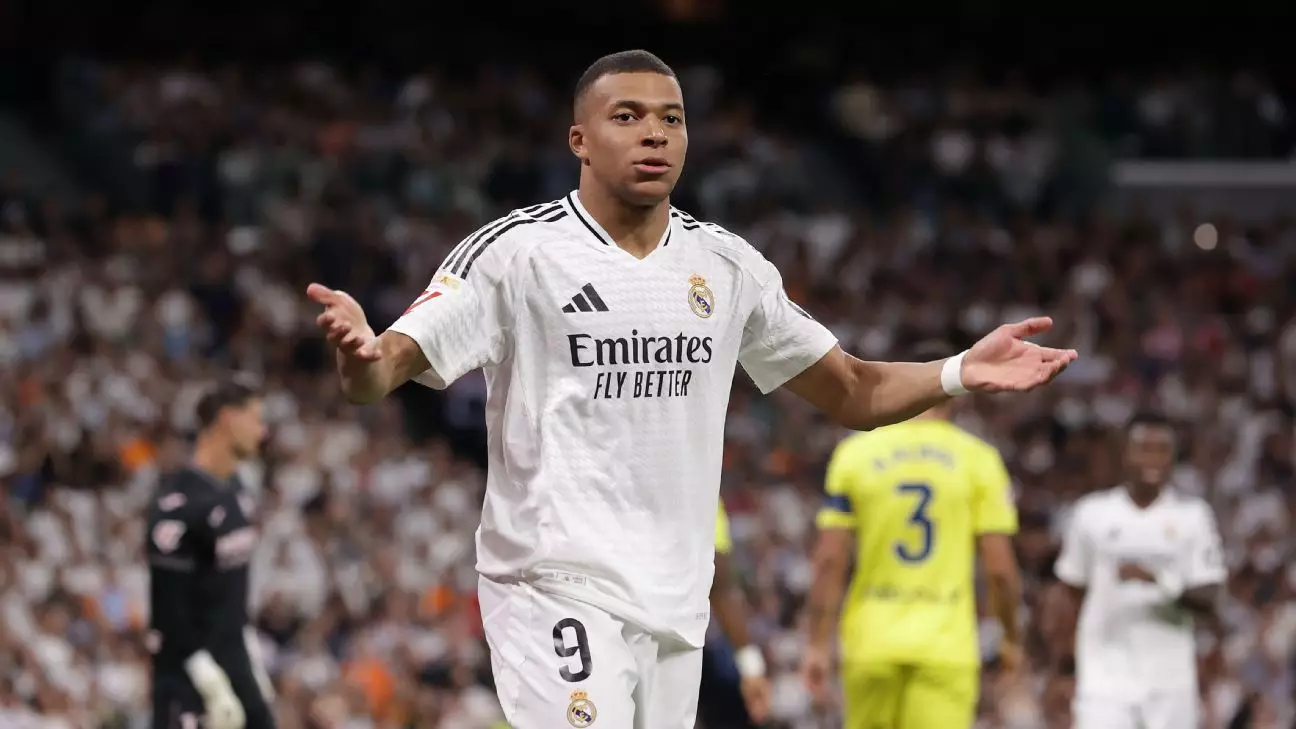The Kylian Mbappé Allegations: A Deep Dive into Misinformation and Media Ethics
There’s something about waking up to a shocking headline that makes you pause, isn’t there? That’s exactly what happened when allegations against Kylian Mbappé, the illustrious French national team captain, made the rounds. The buzz was palpable, and not just in the sports world—but across newsrooms and living rooms alike. As someone who loves both the beautiful game and the stories behind it, I found myself caught up in the whirlwind of discussions these allegations stirred.
Beyond the immediate reactions to the headlines, there’s a deeper narrative at play here—one that speaks volumes about our current media landscape. It got me thinking about how quickly information can spread and mutate, especially when it involves high-profile figures like Mbappé. There’s an undeniable tension between reporting the facts and the rush to be first with sensational stories. It’s a dilemma that affects not only athletes but anyone who finds themselves in the public eye.
Diving into this story has been a real eye-opener for me, shedding light on issues far broader than just one athlete’s reputation. It touches on media ethics, the speed of digital information dissemination, and how easily misinformation can warp public perception. If you’re anything like me, you probably find yourself questioning where the truth lies amidst all this noise.
Key Takeaways
- Allegations against Kylian Mbappé highlight issues in media reporting and misinformation.
- The rapid spread of unverified claims underscores the need for ethical journalism.
- Public figures face unique challenges in managing their reputations amid rumors.
The Power of Headlines
When news broke about Kylian Mbappé being under investigation for alleged misconduct, it was like throwing a match into dry tinder. The media frenzy was almost instantaneous, with outlets eager to publish any tidbit they could gather. But as we’ve seen too often, speed can sometimes come at the expense of accuracy. False narratives can spread like wildfire, long before any substantial evidence is brought to light.

This isn’t just about one athlete’s experience; it’s a reflection of how modern media operates under pressure. In an age where clicks and views are currency, there’s a temptation to prioritize sensationalism over truth. And while some may argue that it’s all part of keeping the public informed, others point out that it can lead to irreversible damage to personal reputations.
The Response from Mbappé’s Camp
Amidst swirling rumors, Mbappé’s representatives were quick to respond, labeling the allegations as “totally false” and “slanderous.” Their immediate pushback illustrates a critical aspect of today’s media landscape: the necessity for those accused to defend themselves promptly and vocally. With social media platforms amplifying every statement or claim made, remaining silent is rarely an option.
This situation highlights how athletes have become adept at navigating public crises. By swiftly addressing such claims, they attempt to shape their own narrative before misinformation takes root. However, it also reveals the immense pressure on public figures to constantly manage their public image amid relentless scrutiny.
The Role of Social Media
Social media has revolutionized how we consume information—and not always for the better. When Mbappé took to X (formerly Twitter) to denounce the allegations as “Fake News!!!!”, it was a clear demonstration of how influential these platforms have become in shaping public opinion. But with great power comes great responsibility—or at least it should.

The ability for anyone to share or comment on a story means that rumors can gain traction quickly. Public figures must navigate these waters carefully, balancing transparency with measured responses. And for us as consumers of this information? Well, it’s a reminder to approach everything we read online with a healthy dose of skepticism.
The Ethical Quandary
At its core, this situation underscores a fundamental question: What responsibility do media outlets have when reporting potentially damaging allegations? The implications are enormous—not just for those directly involved but also for public trust in journalism itself. As we dissect cases like this one involving Mbappé, there’s no denying the pivotal role ethics play in shaping truthful narratives.
Ethical journalism demands thorough fact-checking and restraint from jumping onto sensationalist bandwagons. Yet achieving this ideal is easier said than done in today’s fast-paced digital environment. There needs to be accountability from both journalists and consumers who perpetuate these stories without verifying their authenticity first.
Final Thoughts
The unfolding narrative around Kylian Mbappé serves as a stark reminder of why scrutinizing our sources matters more than ever before. With so many voices competing for attention online—some trustworthy; others less so—it falls upon each of us individually (and collectively) not only consume content responsibly but also demand better standards across boardrooms too!
As we continue following developments surrounding these allegations closely over coming months/years ahead—it’ll undoubtedly leave lasting impact upon multiple sectors including sports/media/ethics alike…and hopefully inspire meaningful change towards greater transparency/honesty within industry overall!
Kylian Mbappémedia ethicsmisinformationjournalism


Leave a Reply